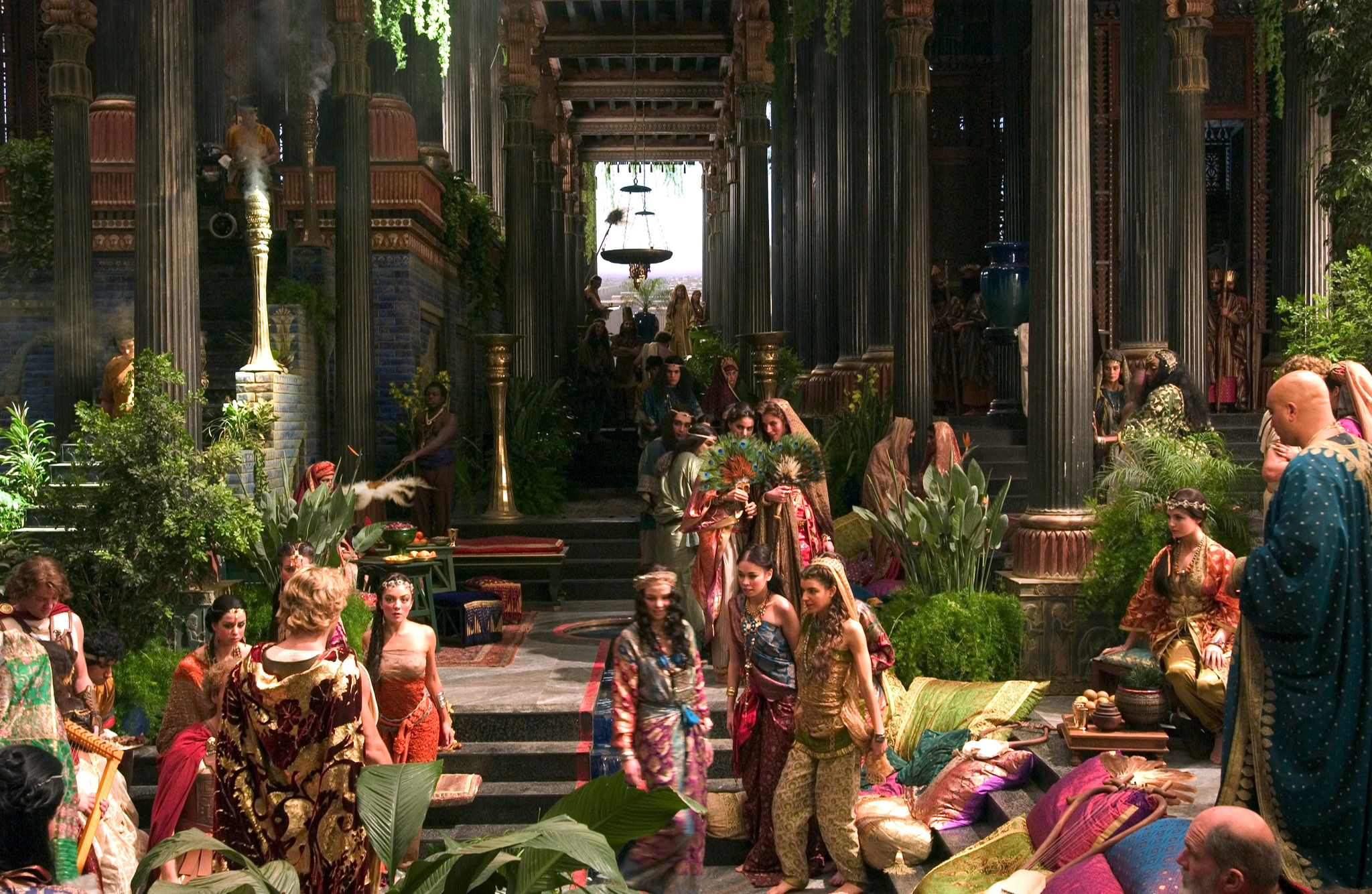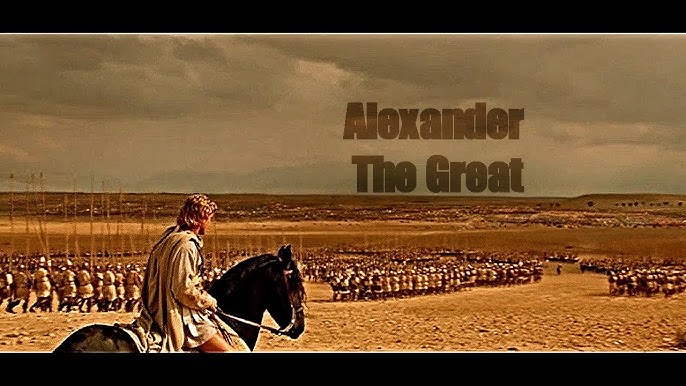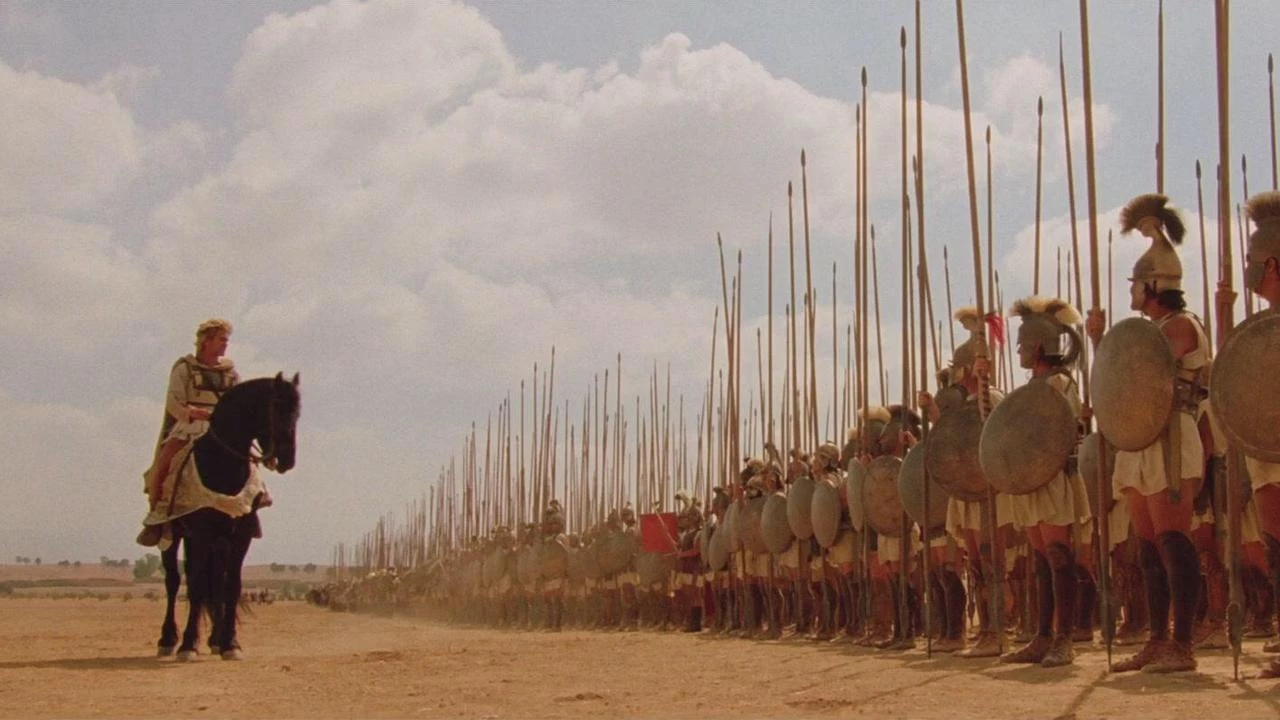🎬 Alexander (2004)

Alexander (2004) Review
Introduction
Directed by Oliver Stone, Alexander (2004) is an ambitious historical epic that chronicles the life and conquests of Alexander the Great, one of history’s most legendary figures. Starring Colin Farrell as Alexander, the film seeks to capture the complexities of his character, his relationships, and his ambition to unite the known world. Despite its sprawling narrative and grand scale, the film received mixed reviews upon release, with criticism aimed at its structure and character development.
Plot Overview
The film opens with an aged Ptolemy (Anthony Hopkins) recounting Alexander’s life to a scribe, framing the story as a reflection on Alexander’s legacy. From his childhood under the influence of his ambitious mother, Olympias (Angelina Jolie), and his strict yet inspiring father, King Philip II of Macedon (Val Kilmer), Alexander’s path to greatness is shaped by ambition, prophecy, and personal conflict.
The narrative follows Alexander as he ascends to the throne of Macedon and embarks on an unprecedented campaign of conquest. Key moments include the Battle of Gaugamela, his complex relationships with Hephaestion (Jared Leto) and Roxana (Rosario Dawson), and his eventual decline as his empire stretches too far. The film explores themes of legacy, cultural integration, and the burden of greatness, culminating in Alexander’s untimely death at 32.
Strengths
1. Grand Visual Scale
Oliver Stone’s ambition shines through in the film’s grand set pieces and epic battle sequences. The Battle of Gaugamela, in particular, is a visual spectacle, showcasing the chaos and strategy of ancient warfare with sweeping cinematography and intricate choreography.
2. Exploration of Complex Themes
The film delves into the psychological and philosophical aspects of Alexander’s life, exploring his vision of uniting cultures, his internal struggles, and his relationships. This depth adds layers to the narrative, aiming to portray Alexander as more than just a conqueror.
3. Strong Supporting Cast
Angelina Jolie’s portrayal of Olympias is captivating, blending ambition, manipulation, and maternal devotion. Jared Leto’s Hephaestion brings emotional resonance to Alexander’s story, while Val Kilmer delivers a memorable performance as the volatile King Philip.
4. Evocative Musical Score
Composed by Vangelis, the film’s score enhances its emotional and epic tone, blending haunting melodies with grand orchestral themes that underscore Alexander’s triumphs and tragedies.
Weaknesses
1. Disjointed Narrative Structure
The film’s non-linear storytelling, jumping between Alexander’s childhood, key battles, and personal moments, can feel disorienting. This structure disrupts the narrative flow, making it difficult to fully engage with Alexander’s journey.
2. Pacing Issues
At over three hours in its original theatrical release, Alexander struggles with pacing, particularly in its extended dialogues and exposition-heavy scenes. These moments detract from the momentum of the film’s action and drama.
3. Colin Farrell’s Uneven Performance
While Farrell captures Alexander’s charisma and ambition, his performance is inconsistent, with moments that feel overly theatrical. This detracts from the complexity and authenticity of the character.
4. Lack of Character Development
Despite its length, the film underdevelops key relationships, particularly between Alexander and his generals. This limits the emotional impact of the story, reducing key figures to mere archetypes.
Themes and Symbolism
1. Legacy and Immortality
The film emphasizes Alexander’s obsession with leaving a lasting legacy, exploring how his conquests were driven by a desire for immortality through history.
2. Cultural Integration
Alexander’s vision of uniting East and West is a central theme, reflecting his attempts to blend cultures and create a unified empire. This ambition is both celebrated and critiqued in the film.
3. The Burden of Leadership
Alexander’s struggles with loyalty, betrayal, and the weight of his empire highlight the isolating nature of power and the sacrifices required for greatness.
Visual and Technical Aspects
1. Cinematography
Rodrigo Prieto’s cinematography captures the vastness of Alexander’s campaigns, from the deserts of Persia to the jungles of India. The use of sweeping camera movements and dynamic angles enhances the epic scale.
2. Production Design and Costumes
The film’s attention to detail in set design and costumes immerses viewers in the ancient world. From Macedonian armor to Persian palaces, the visuals are meticulously crafted.
3. Editing
The extended cuts of the film improve upon the theatrical release, offering a more cohesive narrative. However, the editing still struggles to balance the film’s multiple subplots and thematic explorations.

Final Verdict
Alexander (2004) is a bold and ambitious epic that aims to capture the complexity of one of history’s most fascinating figures. While its grand visuals and thematic depth are commendable, the film is hindered by a disjointed narrative, pacing issues, and uneven character development. For viewers seeking a thoughtful exploration of Alexander’s legacy, the extended director’s cut offers a more satisfying experience. However, the film’s shortcomings prevent it from achieving the greatness it aspires to portray.
Rating: 6.5/10 (Theatrical Cut)
Rating: 7.5/10 (Director’s Cut)